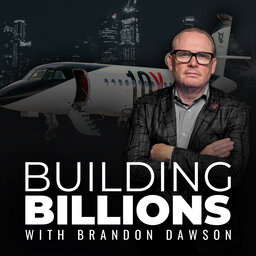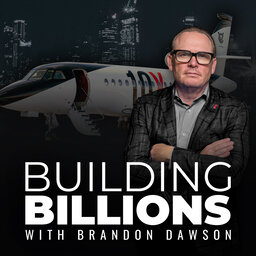EP 202 | Building Billions with Badass Retired Seal Team 4 Guys
Oaths episode of Building Billions, I'm diving deep into the extraordinary journey of two exceptional individuals who have not only served their country as badass Navy SEALs but have also ventured into the world of entrepreneurship and co-founded the groundbreaking company, Matbock.
Our guests, Sean Matson and Zach Steinbock, bring a unique blend of valor, innovation, and business acumen to the table. As co-founders of Matbock, they have successfully forged a path from the battlefield to the boardroom, building a thriving business that has left an indelible mark on the military and outdoor industry.
In this episode, we uncover the compelling stories behind Sean and Zach's transition from elite warriors to pioneering entrepreneurs. From their time serving as Navy SEALs, we explore how the core principles of discipline, teamwork, and resilience ingrained in their military training have translated into the foundation of their entrepreneurial journey.
Don't forget to leave a review and share this episode with a badass entrepreneur.
In 1 playlist(s)
Building Billions with Brandon Dawson
Welcome to Building Billions with Brandon Dawson. This podcast will be taking you on the journey of …Social links
Follow podcast
Recent clips

Let Go to Level Up: How I Built Hundreds of Millions
12:41

S2 EP 12 The Hard Truths I Learned in 2025
07:02

S2 EP 10 | The Truth About Success: The 5 Things School Will Never Teach You
11:01
 Building Billions with Brandon Dawson
Building Billions with Brandon Dawson